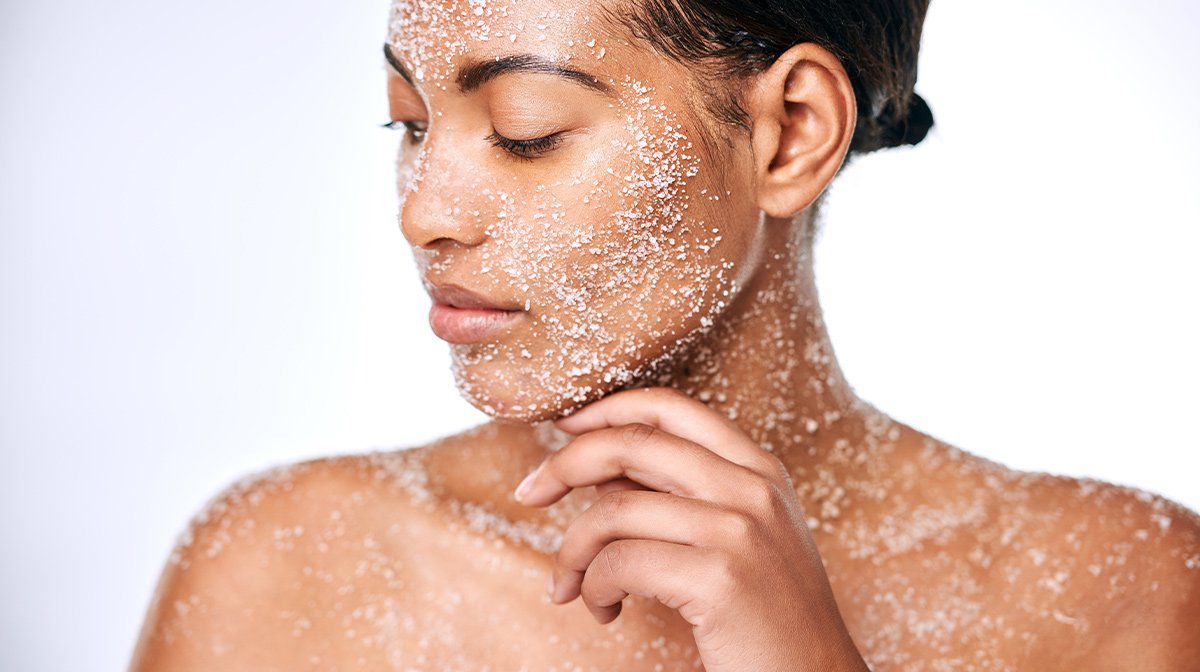Benefits of Exfoliation
Exfoliation is an essential step in any skincare routine, offering numerous benefits for the health and appearance of your skin. In this article, we will explore the advantages of exfoliation and how it can help you achieve a radiant and youthful complexion.
Enhances Skin Texture
Exfoliation plays a crucial role in improving skin texture. By removing dead skin cells from the surface of your skin, exfoliation promotes cell turnover, revealing fresh and smooth skin underneath. This process helps to reduce the appearance of roughness, fine lines, and wrinkles, giving your skin a more refined and youthful look.
Unclogs Pores
Regular exfoliation helps to unclog pores, preventing the buildup of dirt, oil, and other impurities. When pores become clogged, it can lead to breakouts and acne. By exfoliating, you can effectively remove these impurities, reducing the likelihood of blemishes and promoting clearer skin.
Improves Skin Tone
Exfoliation can also contribute to a more even skin tone. It helps to fade dark spots, hyperpigmentation, and acne scars by promoting the growth of new skin cells. This process can result in a brighter and more radiant complexion, giving you a natural glow.
Enhances Skincare Product Absorption
One of the often overlooked benefits of exfoliation is its ability to enhance the absorption of skincare products. When you remove the layer of dead skin cells, your skin becomes more receptive to the active ingredients in your serums, moisturizers, and other skincare products. This allows the products to penetrate deeper into the skin, maximizing their effectiveness.
Stimulates Blood Circulation
Exfoliation stimulates blood circulation in the skin, promoting a healthier complexion. Increased blood flow brings oxygen and nutrients to the skin cells, helping to nourish and rejuvenate them. This can result in a more vibrant and youthful appearance.
Prevents Ingrown Hairs
For those prone to ingrown hairs, exfoliation can be particularly beneficial. By gently removing dead skin cells, exfoliation helps to prevent the obstruction of hair follicles, reducing the likelihood of ingrown hairs. This is especially important for areas such as the bikini line, legs, and underarms.
Types of Exfoliation
There are two main types of exfoliation: physical and chemical.
Physical Exfoliation
Physical exfoliation involves the use of granular substances or tools to physically scrub away dead skin cells. Common physical exfoliants include scrubs, brushes, and exfoliating gloves. When using physical exfoliants, it is important to be gentle to avoid irritating or damaging the skin.
Chemical Exfoliation
Chemical exfoliation involves the use of chemical substances, such as alpha-hydroxy acids (AHAs) or beta-hydroxy acids (BHAs), to dissolve dead skin cells. These chemical exfoliants work by breaking down the bonds between skin cells, allowing them to be easily sloughed off. Chemical exfoliation is often gentler than physical exfoliation and is suitable for various skin types.

Exfoliation offers a multitude of benefits for your skin, including improved texture, unclogged pores, even skin tone, enhanced product absorption, increased blood circulation, prevention of ingrown hairs, and more. By incorporating regular exfoliation into your skincare routine, you can achieve a healthier, more radiant complexion. Remember to choose the exfoliation method that suits your skin type and be consistent in your efforts. Start experiencing the amazing benefits of exfoliation today!
Frequently Asked Questions – Benefits of Exfoliation
1. What is exfoliation?
Exfoliation is the process of removing dead skin cells from the surface of the skin.
2. Why is exfoliation important?
Exfoliation is important because it helps to unclog pores, prevent acne, improve skin texture, and promote a
brighter complexion.
3. How often should I exfoliate?
The frequency of exfoliation depends on your skin type. Generally, it is recommended to exfoliate 1-3 times a
week.
4. Can exfoliation help with anti-aging?
Yes, exfoliation can help with anti-aging by promoting cell turnover, reducing the appearance of fine lines and
wrinkles, and improving the absorption of anti-aging products.
5. What are the different types of exfoliation?
There are two main types of exfoliation: physical exfoliation, which involves using scrubs or brushes to manually
remove dead skin cells, and chemical exfoliation, which involves using acids or enzymes to dissolve and remove
dead skin cells.
6. Can exfoliation help with acne?
Yes, exfoliation can help with acne by unclogging pores, preventing the buildup of bacteria, and reducing
inflammation.
7. Is exfoliation suitable for sensitive skin?
Exfoliation can be suitable for sensitive skin, but it’s important to choose gentle exfoliants and avoid
over-exfoliating, as it can cause irritation.
8. Can exfoliation help with dry skin?
Yes, exfoliation can help with dry skin by removing the dead skin cells that can make the skin appear dull and
flaky, allowing moisturizers to penetrate more effectively.
9. Should I exfoliate before or after cleansing?
It is generally recommended to exfoliate after cleansing, as this allows the exfoliant to work directly on clean
skin.
10. Can exfoliation help with hyperpigmentation?
Yes, exfoliation can help with hyperpigmentation by promoting cell turnover and reducing the appearance of dark
spots over time.




